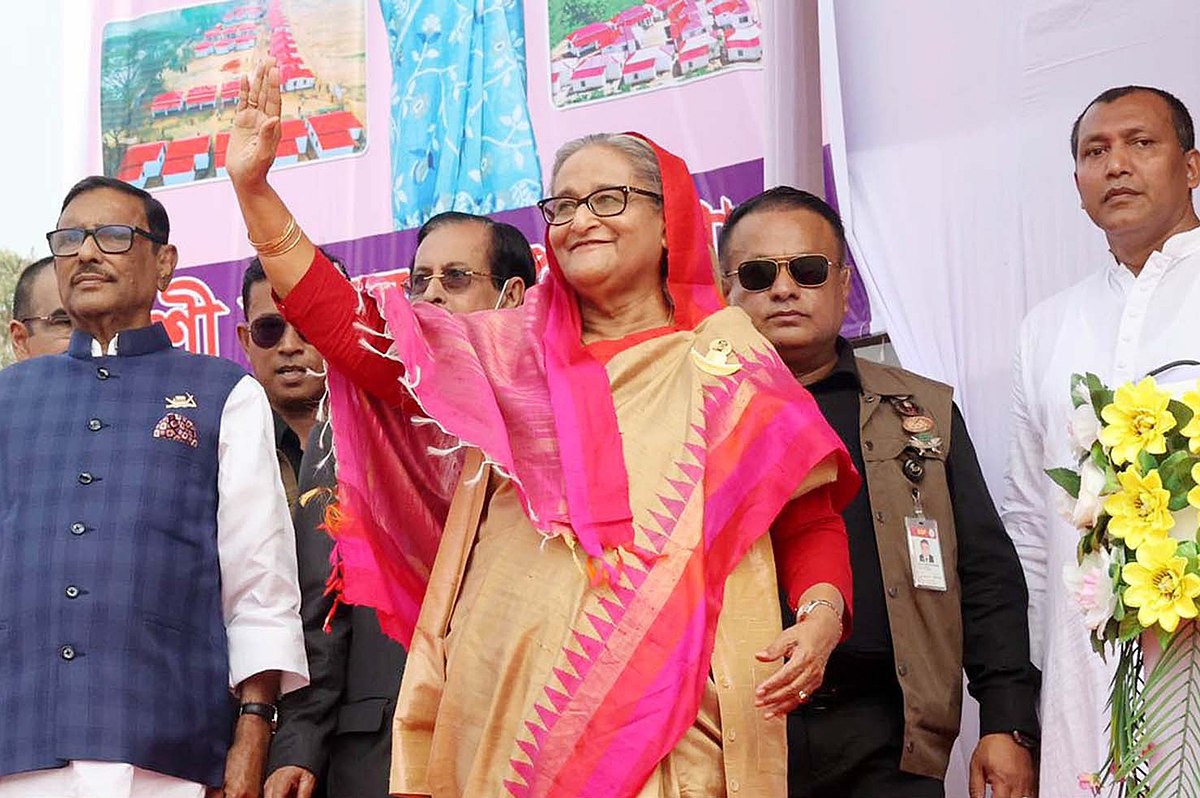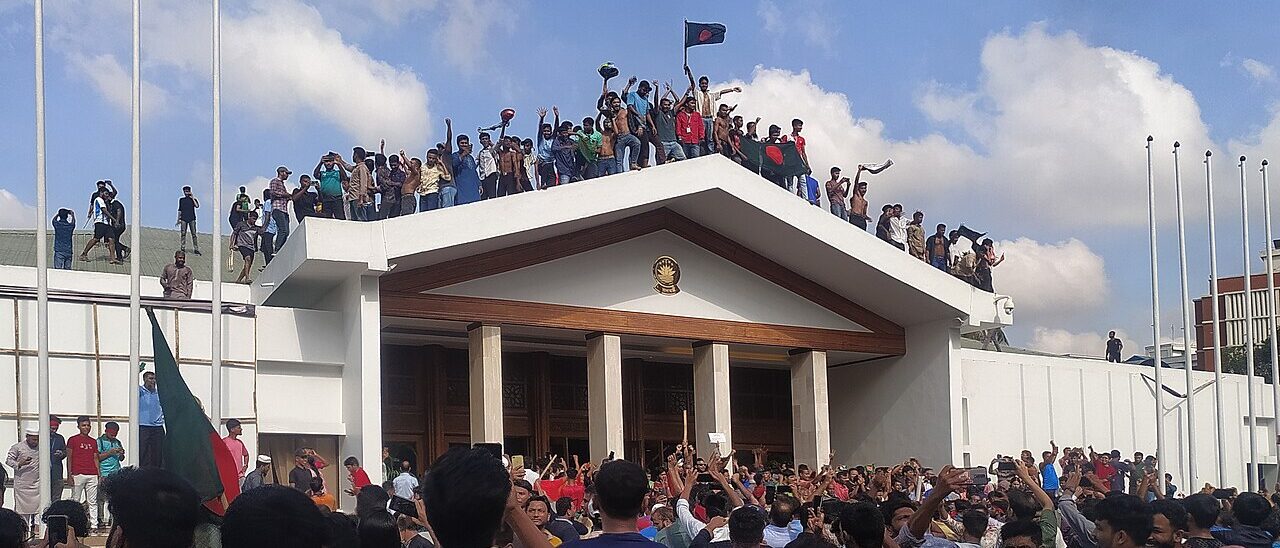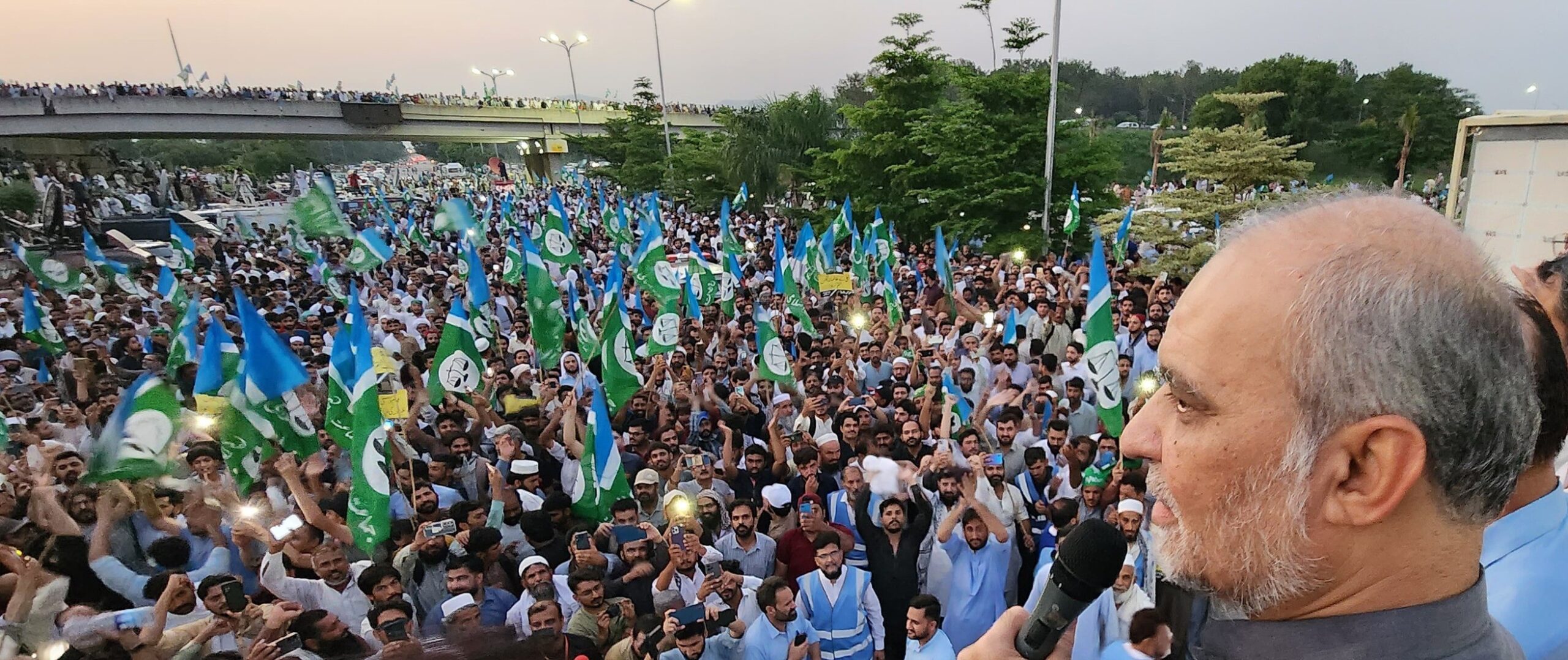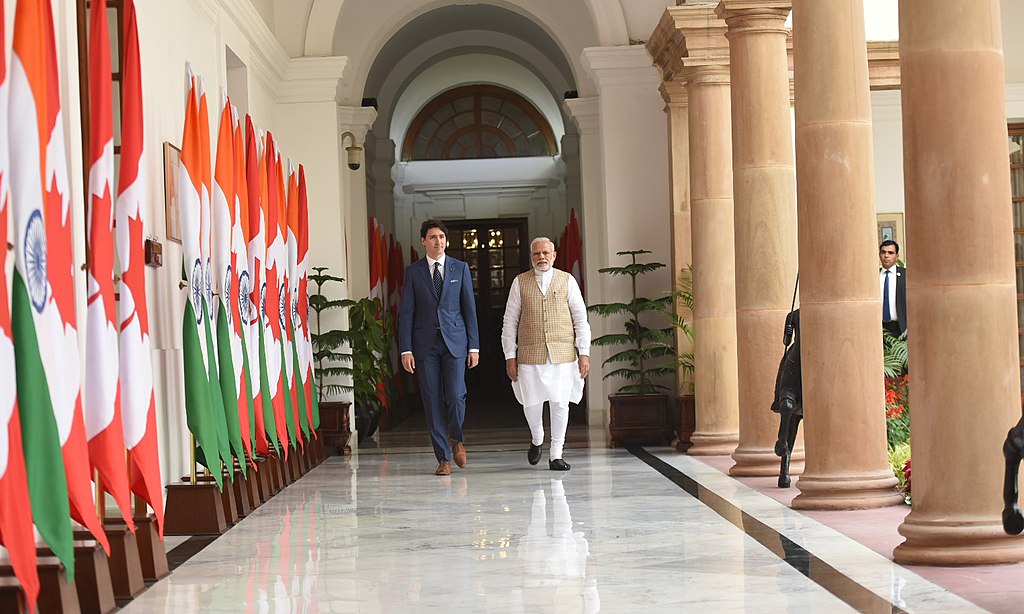By Mian Muhammad Aslam
Jamat-e-Islami (JI) is an ideological organisation. Its tenets are completely in line with the ideology of Pakistan. The Pakistan Resolution was presented in 1940 and then the two-nation theory became a voice of the nation and the slogan “What is the meaning of Pakistan: La Ilaha Illallah” (there is god But Allah) echoed all over the country.
Jamat-e-Islami was founded in 1941 in Lahore. It was written in the organisation’s constitution that the faith of Jamat-e-Islami is “La ilaha illallahu Muhammadur Rasulullah” (There is none worthy of worship except Allah and Muhammad (peace be upon him) is His messenger).
Syed Abul A’la Maududi, the founder of Jamat-e-Islami, wrote articles in his monthly magazine “Tarjumanul Quran” in support of the two-nation theory and also explained with arguments that the Muslim and Hindu were two separate nations. These articles were published in three volumes with the title of “Siyasi Kashmakash” (political struggle) before the creation of Pakistan.
Syed Maududi writes in the third volume of his articles about his devotion for the creation of Pakistan: “If I find a single square mile of land where no one rules the men except God, I will take a single speck of its dust more valuable than the whole India.
The Muslim League circulated these articles written by Syed Maududi in favour of the ideology of Pakistan across India and meanwhile established an Islamic Constitutional Committee to highlight the Islamic identity of Pakistan. This committee included Syed Maududi along with other prominent personalities.
Jamat-e-Islami compiled its constitution and devised a roadmap since its inception in 1941. The goal of JI is derived from a Quranic verse.
“It is He who sent His Messenger with guidance and the religion of truth to manifest it over all religion, although those who associate others with Allah dislike it.” (Surah As-Saf, Ayah 9)
Syed Maududi’s dream was to turn India into an Islamic state. He opposed the All-India Congress party his entire life. He published his own magazine “Tarjumanul Quran”. He also rejected the one-nation theory of Congress and started a series of arguments in support of the two-nation theory.
When Jamat-e-Islami was established in 1941, a delegation of Jamat went to meet Quaid-i-Azam in Delhi to present their perspective about the Pakistan Movement. After the meeting, the delegation elaborated in its report that Quaid-i-Azam Muhammad Ali Jinnah listened to their recommendations for 45 minutes with complete attention and assured them that there were no differences between Jamat-e-Islami and the Muslim League. He lauded the work of Syed Maududi and made it clear that if Jamat-e-Islami was busy in building the lives and characters of the Muslims, the Muslim League was also busy with another important task ie to acquire an independent state for the Muslims.
The Quaid-i-Azam also assured the delegation that as long as the final goal was concerned, there was no difference between Jamat-e-Islami and the Muslim League. “I will keep struggling for a separate country for the Muslims and you too keep trying for the same cause. It doesn’t matter if we don’t have the same platform,” he told the members of the delegation. He also explained his point with an example about the importance of the creation of Pakistan. “I want to acquire land for a mosque and when we will get this land, we can decide how a mosque should be built.”
At the time of the creation of Pakistan, Jamat-e-Islami was undergoing an organisational restructuring and its Islamic literature was being prepared. The headquarters was located in Gurdaspur at that time. The status of the organisation was more educational and religious than political. Starting with 75 people in 1941, the number of JI members grew to 625 at the time of the creation of Pakistan. The members of Jamat-e-Islami were hoping that the district of Gurdaspur will be merged with Pakistan. But when the decision was changed overnight, the Muslims were asked to vacate the area. Syed Maududi decided to migrate and he established an office of Jamat-e-Islami Pakistan in Lahore.
In December 1947, the government of Pakistan invited Syed Maududi to start a series of addresses to present the concept of an Islamic way of life. After a few days of receiving the invitation letter from the director of Radio Pakistan, Syed Maududi started a series of speeches on the radio in the first week of January 1948.
The moral system of Islam was the topic of the first address and the political system of Islam was his second speech. He focused his addresses on the social, economic and spiritual system of Islam.
Different national institutions of Pakistan invited him to speak at their seminars. Punjab University Vice Chancellor Umar Hayat Malik organised an address on “Islamic law and practical approach for its implementation in Pakistan”.
Shortly, this ideological approach of Syed Maududi became unbearable for the powerful ruling Muslim League. These ruling elites had already been criticised by Syed Maududi in his articles. “These feudal and religious landlords will never let Pakistan become an Islamic state because of their vested interests and character. They will do things in the name of Islam that even non-Muslim countries would not do against the Muslims.”
Now, this is the truth of history that Jamat-e-Islami went through the worst times following the death of Quaid-i-Azam Muhammad Ali Jinnah. After assessing the situation in the country, Jamat launched a drive for an Islamic system. Syed Maududi was arrested for launching this campaign.
The government accepted the demands of Syed Maududi and drafted the Objectives Resolution which became the preamble and the most important part of the Constitution. The resolution, in its entirety, became article 2A integral part of the Constitution.
The secular class was ready to wipe out the ideological foundations of the country following the death of the Quaid-i-Azam and Liaquat Ali Khan. The conspiracies from Qadianis were at their peak because of the Qadiani foreign minister Chaudhry Sir Zafarullah Khan. Syed Maududi wrote his book “Qadianism issue” in which he proved that Qadianis were not a sect of Muslims but they were non-Muslims. A military court awarded him a death sentence for writing this book. Heavey protests strong reaction from all over the world forced the regime to convert the death penalty into a life sentence. But Syed Maududi refused to appeal for any relief. He served nearly two years in jail.
Jamat-e-Islami continued the mission of the Pakistan Movement and made efforts for a change in the society and government in line with the laws of the Quran and Sunnah until today.






